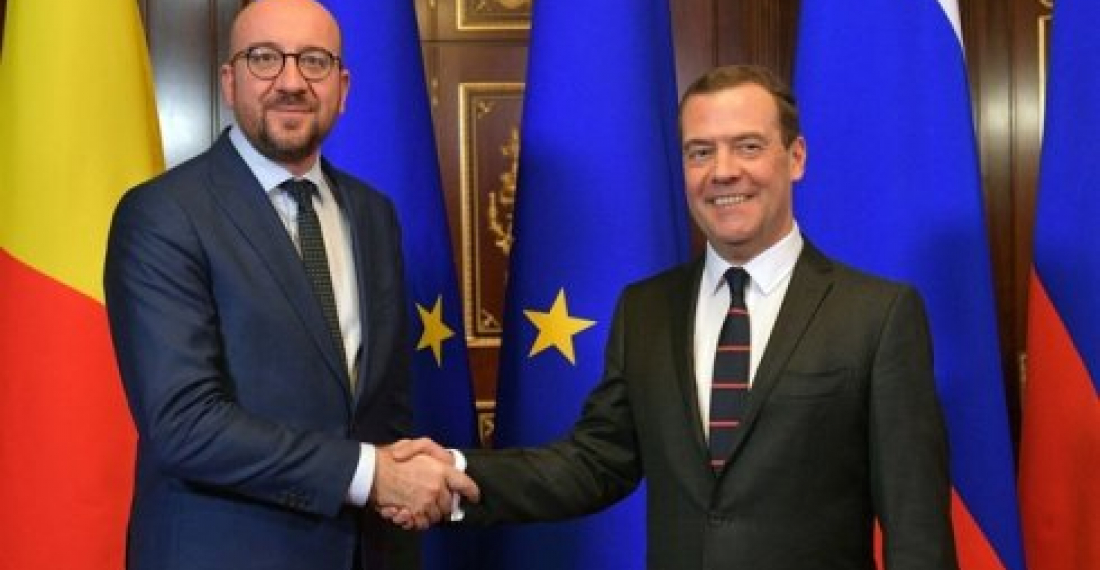Relations between Russia and the European Union have absolutely degraded and nothing good will come of this, Russian Prime Minister Dmitry Medvedev said on Friday at a news conference after talks with Belgian Prime Minister Charles Michel.
Reporting Medvedev's comments at a press brieifing after meeting the Belgian prime minister Charles Michel on the margins of the Europe-Asia Summit, TASS news agency quoted the Russian Prime Minister as saying:
"I have had meetings with lots of other colleagues [at the Asia-Europe Meeting]. Yesterday, I held a brief conversation with President of the European Commission, Mr. [Jean-Claude] Juncker. Actually, I told him what is so well-known. I just wanted to focus his attention on the fact that current relations between Russia and the European Union have absolutely degraded along with ties between the European Commission and Russian government, to say nothing of the summits, several years ago".
The 12th Asia-Europe Meeting (ASEM) summit took place on 18-19 October 2018 in Brussels. It was chaired by the Chairman of the European Council, Donald Tusk.
The summit brought together leaders of 51 European and Asian countries, EU representatives, and the Secretary General of the Association of Southeast Asian Nations (ASEAN).
Concluding the proceedings of the summit, European Council president, Donald Tusk said:
"We have just concluded two days of good discussions about strengthening cooperation between Europe and Asia. We also agreed to renew our support for the rules-based international order. And I believe that this is the most important signal from this summit, especially valid in the current geopolitical context.
We do not agree on everything. But what we have in common is more important than any disagreement. That is why we want our two great continents to be ever more connected. From the European side, our motivation is clear: we want Asians and Europeans to trade more with each other, to visit each other more often, to save the planet's habitat and, finally, to enhance each other's security in these uncertain times."
source: commonspace.eu
photo: Prime Minister Medvedev of Russia and Prime Minister Michel of Belgium at their meeting on the margins of the Europe-Asia Summit







